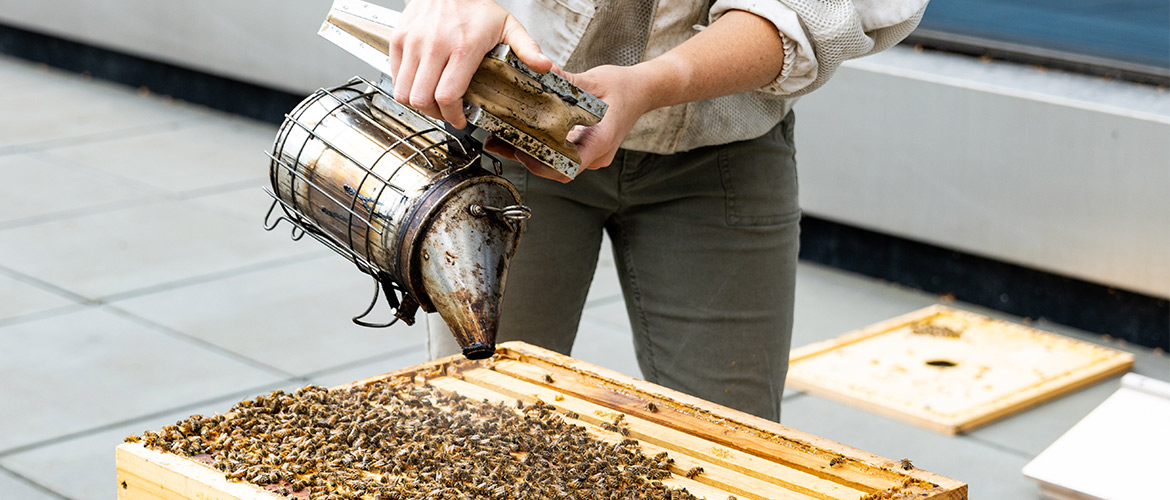Thousands of workers have been relocated at the Chicago headquarters of Blue Cross and Blue Shield of Illinois. Worker bees, that is.
In 2019, BCBSIL’s Chicago office welcomed two hives to the building’s 29th floor as part of its sustainability push. But beekeepers from Alveole, the company overseeing the project, became aware that strong winds made life difficult for the nearly 20,000 bees, causing their population to decline and weaken the hives.
So, in June, they moved the colonies to the fourth floor to help forager bees more easily search for food, bring it back to the hives, bolster their population and require less supplemental feeding throughout the season.
“A lot of bees were getting stuck in a wind tunnel and having trouble getting back up to the hives,” says Ally Pixler, a beekeeper from Alveole, which helps businesses, schools and other organizations bring bees to their buildings. “They just needed a little bit of a helping hand. I think the bees will be a bit happier there.”
"We want everyone to feel like they're a part of the conversation and the sustainability movement within the company."
BCBSIL employees can now also see the beehives through a fourth-floor window, promoting more interaction and education opportunities.
“The power in this project is that it gets people talking and involved,” says Amy Amaon, sustainability engineering consultant at BCBSIL. “The bees are very visible. We want everyone to feel like they're a part of the conversation and the sustainability movement within the company.”
Bees have an outsized influence on the ecosystem. They spend their lives flying miles from home looking for food sources and, moving from flower to flower, they collect pollen on their legs and underbellies and spread it around the environment during their hunt for pollen and nectar.
That nectar is needed to produce everyone’s favorite bee product: honey. Each fall, beekeepers harvest about 200 jars from the BCBSIL hives. The harvest fluctuates depending on the health of the bees and local rainfall. The honey is available for sale to employees.
For Pixler, the project is about helping people see the need to support the wider bee population and the environment.
“If everyone makes small changes in their life to help support these honeybees, they will also be helping our native pollinators,” she says. “All these small changes will lead to some really significant impacts on our local ecology.”
As pollinators, bees help grow many of the crops we eat, including apples, almonds and broccoli. They also produce resources with medicinal properties.
But pesticides and climate change are killing wild bee communities. If they were to go extinct in North America, we would lose about 75% of our produce, Pixler says. So BCBSIL’s hives represent a small act of conservation and opportunity to spread environmental awareness.
“Honestly, Blue Cross has been a wonderful client to work with specifically because the team at Blue Cross has really adopted this project,” she says. “They’re really proud of their bees and it makes my job a lot easier.”

